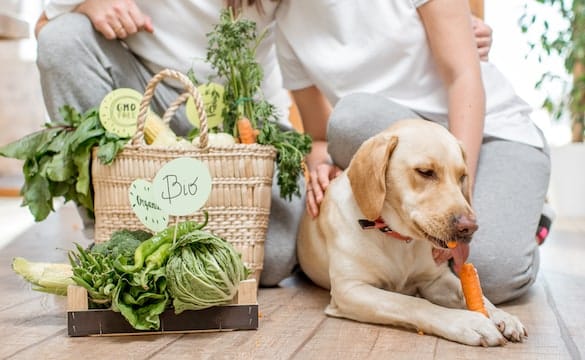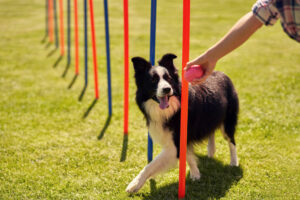As caring dog owners, we always aim to give our beloved furry friends the best. This means giving them a well-balanced diet that not only provides the nutrients they need but also keeps them in good health and high spirits. Although most of their diet should come from high-quality commercial dog food, adding safe and healthy vegetables to their meals can be a nutritious bonus. In this blog, we’ll take a look at several vegetables that are safe for your dog and can provide them with various health benefits.
- Carrots
Carrots are a great vegetable to give to your dog. They’re packed with beta-carotene, which can enhance your dog’s eyesight and keep their coat shiny and healthy. Plus, the crunchiness of carrots can help clean their teeth and give them a satisfying chew.
- Sweet Potatoes
Sweet potatoes are loaded with vitamins and fiber, making them a great choice for your dog. They provide plenty of vitamin A, which boosts your dog’s immune system and keeps their skin healthy. Plus, they contain dietary fiber that helps with digestion.
- Broccoli
Broccoli is a nutrient powerhouse for both humans and dogs. It’s rich in vitamins, particularly vitamin C and vitamin K, which contribute to your Dog Health Fitness. However, feed it in moderation, as excessive consumption can lead to digestive upset.
- Green Beans
Green beans are a smart choice for your dog if they need to lose weight because they’re low in calories and packed with fiber. They also contain vitamins C and K, and you can give them to your dog either cooked or raw.
- Peas
Peas are a vegetable that dogs can eat and enjoy. They provide vitamins A, B, and K, along with important minerals like iron. You can add peas to your dog’s diet in small amounts as a healthy treat.
- Pumpkin
Pumpkin is really good for your dog’s digestion. It’s full of fiber and can help with both diarrhea and constipation. Just be sure to use plain canned pumpkin without any extra sugar or spices.
- Spinach
Spinach is a nutrient-packed leafy green. It contains vitamins A, B, C, and K, as well as iron and calcium. However, it’s essential to serve spinach in moderation due to its oxalates, which can interfere with calcium absorption.
- Zucchini
Zucchini is a low-calorie vegetable that dogs can enjoy safely. It’s packed with vitamins and minerals like vitamin C, potassium, and folate. Just make sure to cook it and cut it into small pieces before giving it to your dog.
- Cucumbers
Cucumbers are a hydrating veggie that can be a nice, cooling treat for your dog, especially when it’s hot outside. They don’t have many calories and have vitamins K and C in them.
- Celery
Celery is a crunchy and fibrous veggie that can be good for your dog’s teeth. It contains vitamins A, B, and C. Just make sure to cut it into small pieces to prevent any choking hazards.
Remember:
- Start by introducing new veggies slowly to prevent tummy troubles.
- Always wash vegetables well to get rid of pesticides and chemicals.
- Remove any seeds, pits, or cores from fruits and veggies before giving them to your dog.
- Don’t add any seasonings, spices, or sauces to the vegetables you share with your dog, as these can be harmful.
- If you’re not sure which vegetables are safe for your dog, especially if they have dietary restrictions or health problems, it’s best to check with your vet.
Conclusion
Incorporating Safe and Healthy Vegetables into your dog’s diet can provide them with essential nutrients and add variety to their meals. But remember, it’s important to give these veggies to your dog in reasonable amounts and talk to your vet if you’re unsure about their diet. By making thoughtful choices, you can help keep your dog healthy and happy for a long and joyful life.







